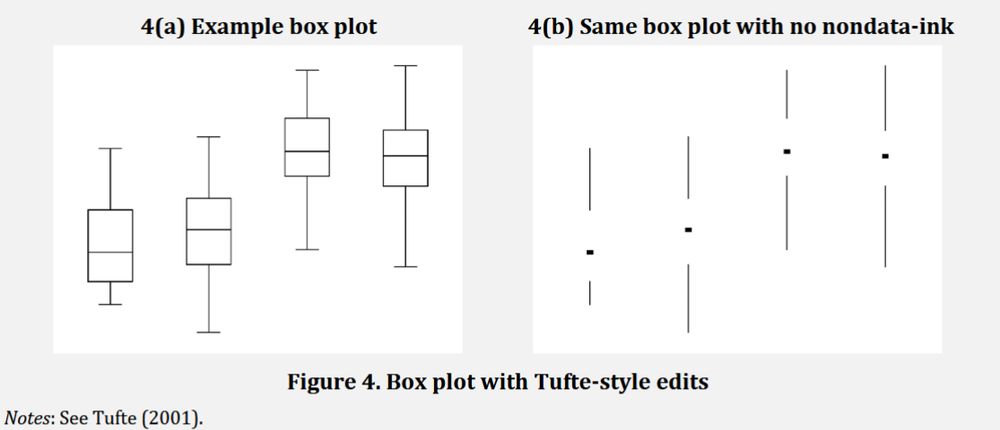
Research interests: agriculture/livestock/productivity/institutions/economic history/data viz

Buy a Costco bag of garlic, spend an hour crushing it all at once, freeze it into a bag.
Break off chunks of delicious garlic popsicle when you need it.

Buy a Costco bag of garlic, spend an hour crushing it all at once, freeze it into a bag.
Break off chunks of delicious garlic popsicle when you need it.
(though also nervous that these great data resources won't be available much longer if the admin keeps taking things down)

(though also nervous that these great data resources won't be available much longer if the admin keeps taking things down)
Our example here illustrates the real misinterpretation that can result from using the wrong diverging point. In this case, it leads us to think unemployment rose instead of fell!

Our example here illustrates the real misinterpretation that can result from using the wrong diverging point. In this case, it leads us to think unemployment rose instead of fell!


In our latent class model, we find that Class 3 (the younger and for more female class) was willing to pay more for diversity. Yet, the info treatment increased WTP across ALL classes.

In our latent class model, we find that Class 3 (the younger and for more female class) was willing to pay more for diversity. Yet, the info treatment increased WTP across ALL classes.
We also had an info treatment that showed about half of our respondents the current demographic makeup of agricultural producers (mostly white and male) before the choices.

We also had an info treatment that showed about half of our respondents the current demographic makeup of agricultural producers (mostly white and male) before the choices.

Also, I can't recommend the book "More Everything Forever" as necessary context about the belief system (religion, tbh) that produces this kind of writing.


Also, I can't recommend the book "More Everything Forever" as necessary context about the belief system (religion, tbh) that produces this kind of writing.


Important to note: I think we had a higher rep of conventional varieties than other studies did.

Important to note: I think we had a higher rep of conventional varieties than other studies did.
There are some great research questions to explore here!


There are some great research questions to explore here!
Black farmers were almost totally barred from county committees. Attempts at being elected were often met with stiff opposition.

Black farmers were almost totally barred from county committees. Attempts at being elected were often met with stiff opposition.
In particular, Black farmers were owed equal funding for their Land Grants, called 1890s, but funding authority was given to state legislatures who often denied them funds.
Quotes from the congressional record show this had a racial goal.

In particular, Black farmers were owed equal funding for their Land Grants, called 1890s, but funding authority was given to state legislatures who often denied them funds.
Quotes from the congressional record show this had a racial goal.
Well, after reaching their peak in 1920, the % of Black farmers dropped precipitously between 1920 and 1970.
A tempting conclusion is that this is not racial inequity, but simply the outcome of structural change, Cochrane's treadmill.

Well, after reaching their peak in 1920, the % of Black farmers dropped precipitously between 1920 and 1970.
A tempting conclusion is that this is not racial inequity, but simply the outcome of structural change, Cochrane's treadmill.
Interestingly, a lot of them lived through the waivers during the pandemic so had a lot of personal experience with the programs.

Interestingly, a lot of them lived through the waivers during the pandemic so had a lot of personal experience with the programs.
Looking forward to yet another year where this joke goes unappreciated.

Looking forward to yet another year where this joke goes unappreciated.
It goes back to 4000 BCE it looks like

It goes back to 4000 BCE it looks like
I plugged my prompt into ChatGPT and it gave way better answers than this, so I'm wondering what LLM they are using to do this if any.


I plugged my prompt into ChatGPT and it gave way better answers than this, so I'm wondering what LLM they are using to do this if any.

However, this result goes away when we quality adjust. Cows are quite good in the cold.

However, this result goes away when we quality adjust. Cows are quite good in the cold.




